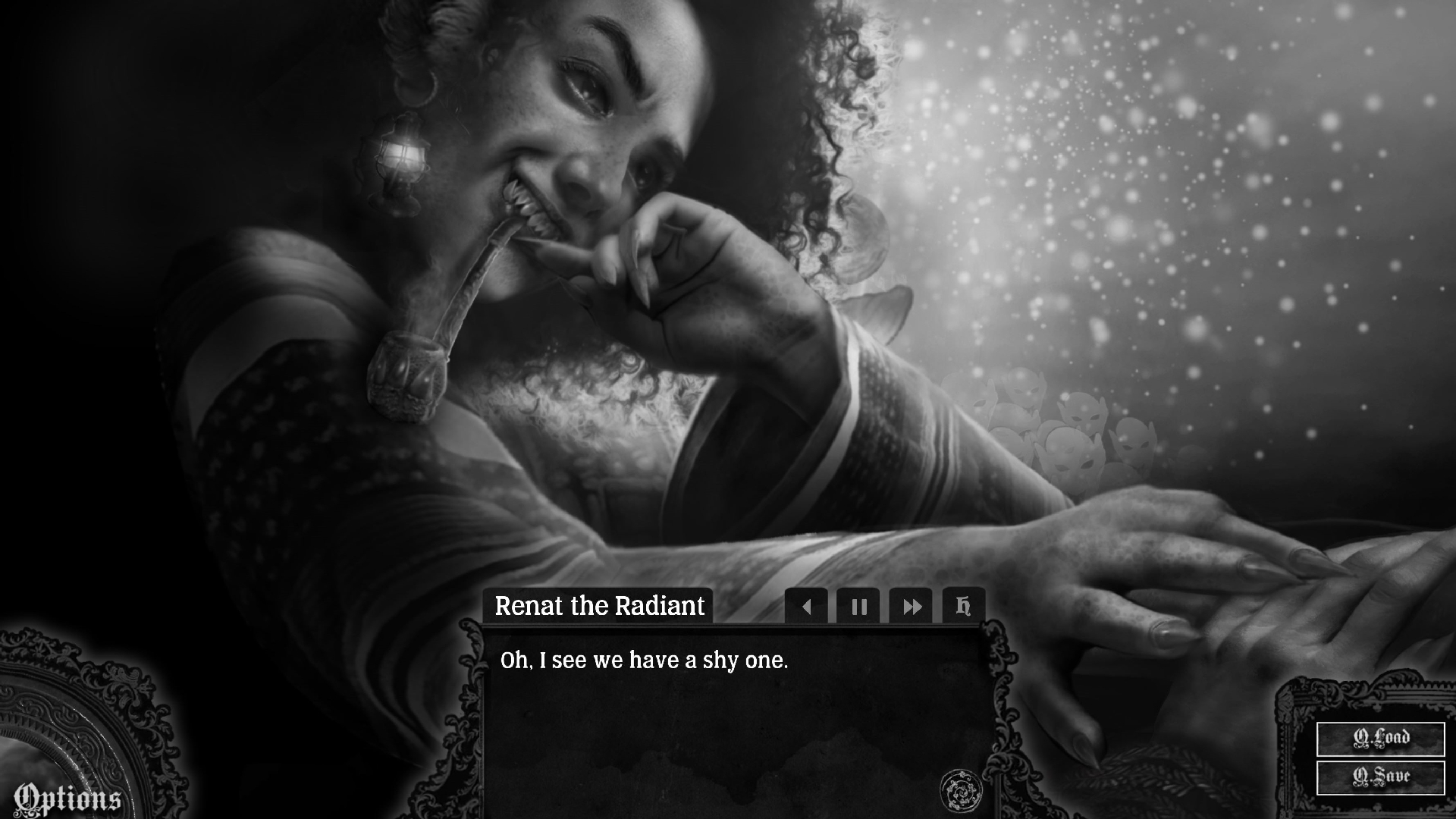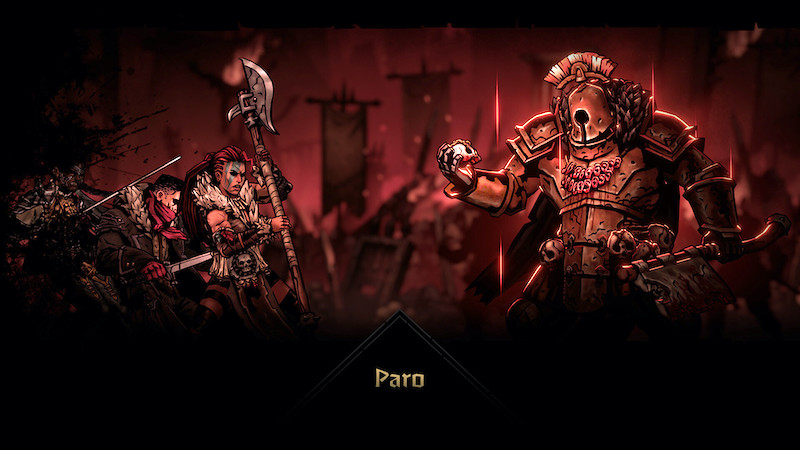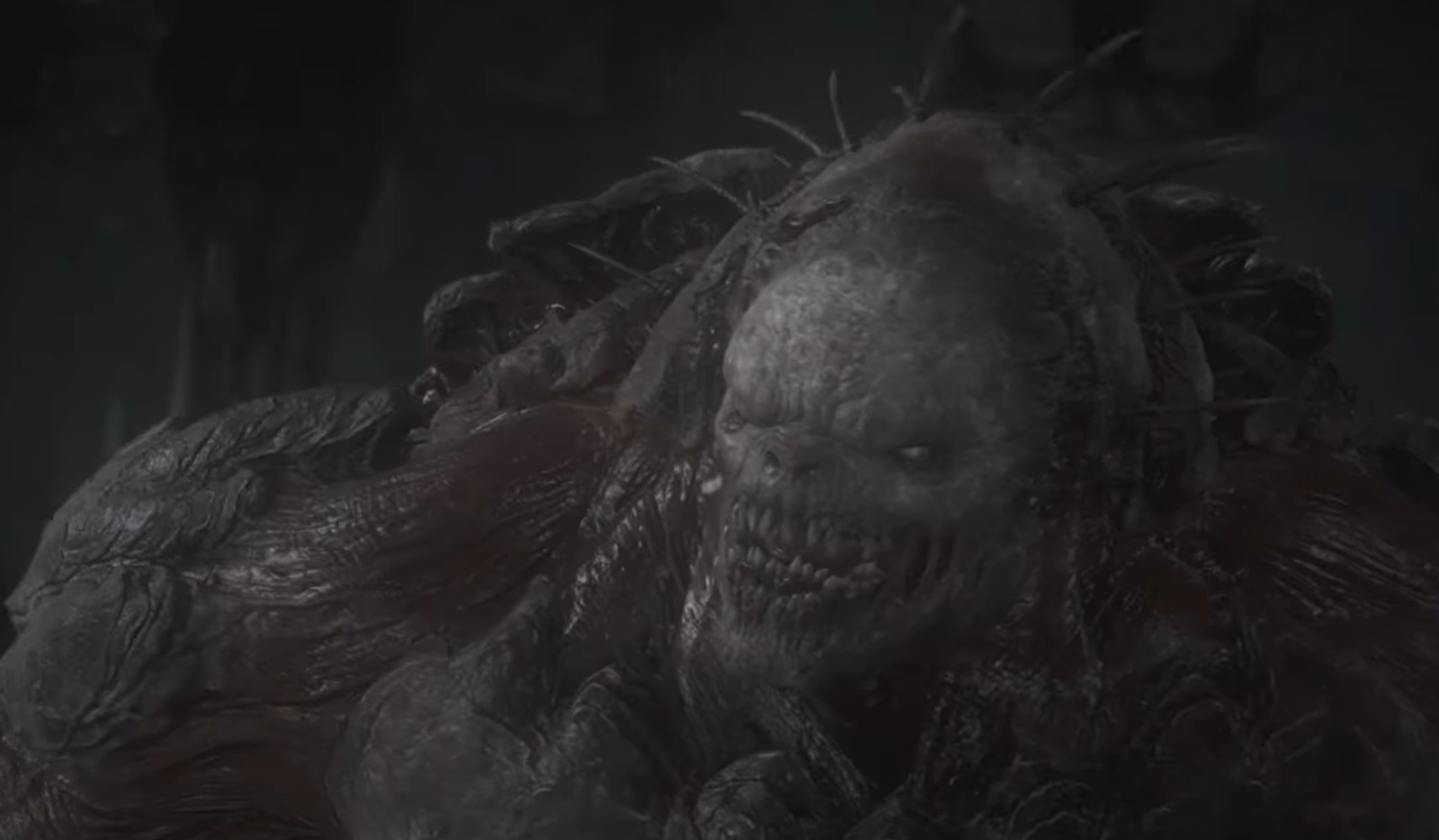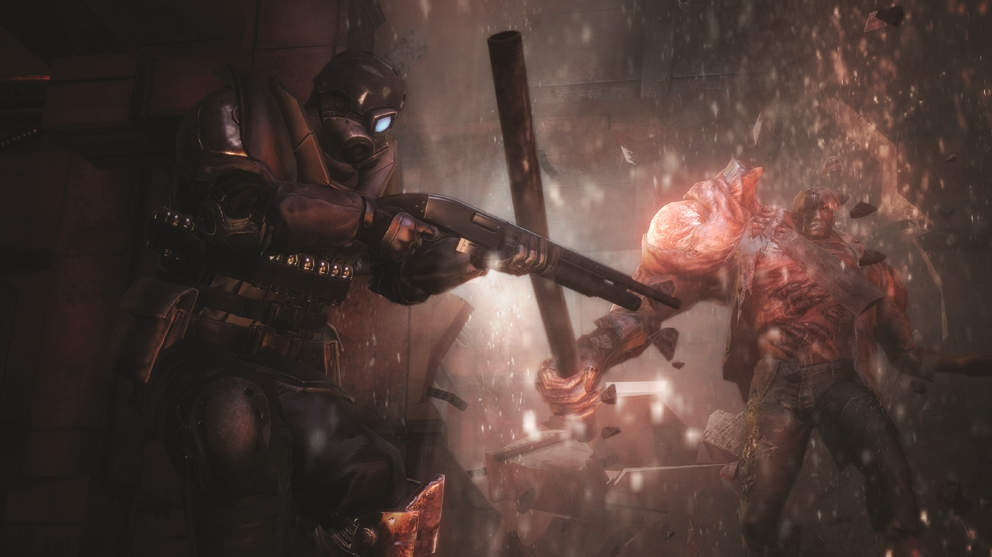
The Inverted Spire is the Queer Horror We Need
Seven goblins, all “volunteered” for an expedition to the Inverted Spire. You’re assigned a number and pushed onto a cold elevator that drops you miles into the earth. As you descend into the dark, a flickering, magical hologram describes each of your crimes. Everyone has objections or addendums and it quickly becomes clear that, descending into a dungeon, cut off from the outside world, there’s no way to fully trust anything anyone says…
The Inverted Spire has a lot to offer queer and trans players. It’s clearly made for us and it shows. For one, all the goblins are non-binary and that owns. Throughout the entire game, you won’t see characters use anything but they/them pronouns. This is never explained explicitly except in devlogs, but this isn’t just a post-gender society; goblins are people who have never had a concept of gender. I’ve played and worked on games where being agender is presented as matter-of-fact, but The Inverted Spire takes it a step further. This isn’t just a throwaway race from a Star Trek episode either, goblins are the main characters and their experience is in the foreground. To me, as a non-binary person and a game developer who strives to put non-binary characters in everything I make, this is delightful and affirming to experience.

But the team didn’t just stop at gender. In one of the devlogs, Nicholai, the writer of the Inverted Spire, states “I wanted something that was both simple enough to implement with my own comparably limited resources, and flexible enough to handle a much more complex simulation of what relationships can be.” From reading devlogs one will find that, not only can you choose to engage in poly relationships, but asexual players aren’t left out in the cold either and you won’t be forced to engage in romance if you don’t want to. In a genre that normally assumes monogamy, heterosexuality, romance, and allosexuality to be the default, the game promises to represent a complete spectrum of the human experience of relationships.
Mechanics are great, but what about the plot, you might ask? The prologue quickly sets everyone against one another, yet also with a common goal in mind: destroy the Spire and reset your reputation. Your status comes from your profession. You avoided working for years and covered it up, but you couldn’t find your passion when you came of age. You avoided the surveillance and the enforced education, deceived your community to avoid punishment after you realized you couldn’t take back what you had done, and then, ultimately, through some sense of guilt, self-hatred, and a desperate need to self-actualize, you confessed to your crime.

Through dialogue and the codex with unlockable tidbits of lore, all of the characters are shown to be trapped in a dystopic cycle of oppression by the state and have been exiled for taking actions that challenge society’s idea of order. Some of the characters are obviously guilty of seemingly victimless crimes. As you’re introduced to the main cast, some clear hints at queer narratives begin to drop. Everyone on the Expedition is there because of some kind of internalized sense of otherness. More than just sexuality, that is what queerness is, and what brings these people together as outcasts. Whether that is for their sexuality itself or their relationship to work, these people are outsiders. These are the circumstances that have led everyone to this Expedition. Ultimately, the most oppressed are used as tools to solve dangerous problems. Even during the prologue, there are situations where you’re forced to decide who to side with in arguments, where you can only take someone’s word.
Except, what if you didn’t have to take someone’s word for what they’re saying? As you first learn through a fable during the opening, all goblins are natural casters. Casters are generally capable of manipulating the physical world (shapeshifting, changing gravity, creating light), but some have more esoteric capabilities. Your specialty is the ability to read minds, though with intriguing limits; this power only works at short distances and requires deep concentration. Much like looking up the answers on your phone during a test, you can’t exactly do this while someone is watching you or it would be obvious you’re cheating, and you can’t search for something without context to know what to look for. All this means that you have a unique and opportunistic privilege of peering into someone’s mind to see if what they say is true beyond any doubt. In a single playthrough (barring savescumming), some blanks will be filled in, but not all…

We learn of this strict and regimented society, but what end are they working towards? Where did the Spire come from? Why is it so threatening? Who are each of your companions really, and can they be trusted? All questions I’m hoping to be answered in the full release of the game. Please go play The Inverted Spire, it’s an incredibly compelling story with a rich world, and I can’t do it justice just with words.
If you want to play The Inverted Spire you can do so on their itch.io page. You can follow the developers here:
- Nicholai A. Melamed (art, writing, and more)
- Feardeer (coding)
- Mickey Hoz (music)
At the time of writing, there is an ongoing crisis in Ukraine devastating the lives of millions. The writer of The Inverted Spire, Nicholai (he/they), is Ukrainian. Please use your time to educate yourself on the crisis in Ukraine, support Ukrainian artists, and aid in relief efforts using the resources below:




